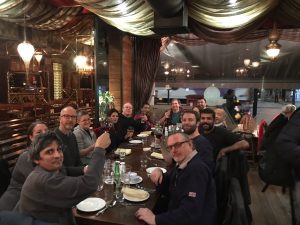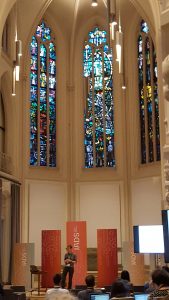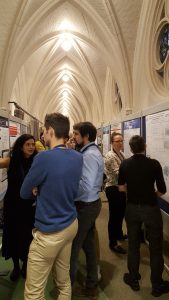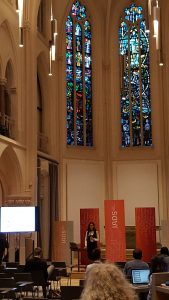Congratulations to:
Mashael Al Luhaybi for her paper “Predicting Academic Performance: A Bootstrapping Approach for Learning Dynamic Bayesian Networks” which has been accepted at AIED 2019
and to the following for their papers being accepted at IEEE CBMS 2019
Biraja Ghoshal for his paper “Estimating Uncertainty in Deep Learning for Reporting Confidence to Clinicians when Segmenting Nuclei Image Data”
Leila Yousefi and Mahir Arzoky for their paper “Opening the Black Box: Exploring Temporal Pattern of Type 2 Diabetes Complications in Patient Clustering Using Association Rules and Hidden Variable Discovery”
Bashir Dodo for his paper “Retinal OCT Segmentation Using Fuzzy Region Competition and Level Set Methods”
Steve Counsell, Stephen Swift, Mahir Arzoky and Giuseppe Destefanis for their poster / short paper “An Empirical Study of the AGIS Visual Field Metric and its Seasonal Variations ”
Awad Al Yousef for his poster / short paper “Latent Class Multi-Label Classification to Identify Subclasses of Disease for Improved Prediction”
Zenchen Wang, Puja Myles and Allan Tucker, “Generating and Evaluating Synthetic UK Primary Care Data: Preserving Data Utility & Patient Privacy”
Other recent conference acceptances:
Arianna Dagliati, Nophar Geifman, Niels Peek, John H. Holmes, Lucia Sacchi, Seyed Erfan Sajjadi, Allan Tucker, “Inferring Temporal Phenotypes with Topological Data Analysis and Pseudo Time-Series” at AIME 2019
and
Fatima Amer Jid Almahri, David Bell and Mahir Arzoky for her paper “Augmented education within a physical space” which has been accepted at UKAIS 2019
Looks like it will be a busy Summer!





